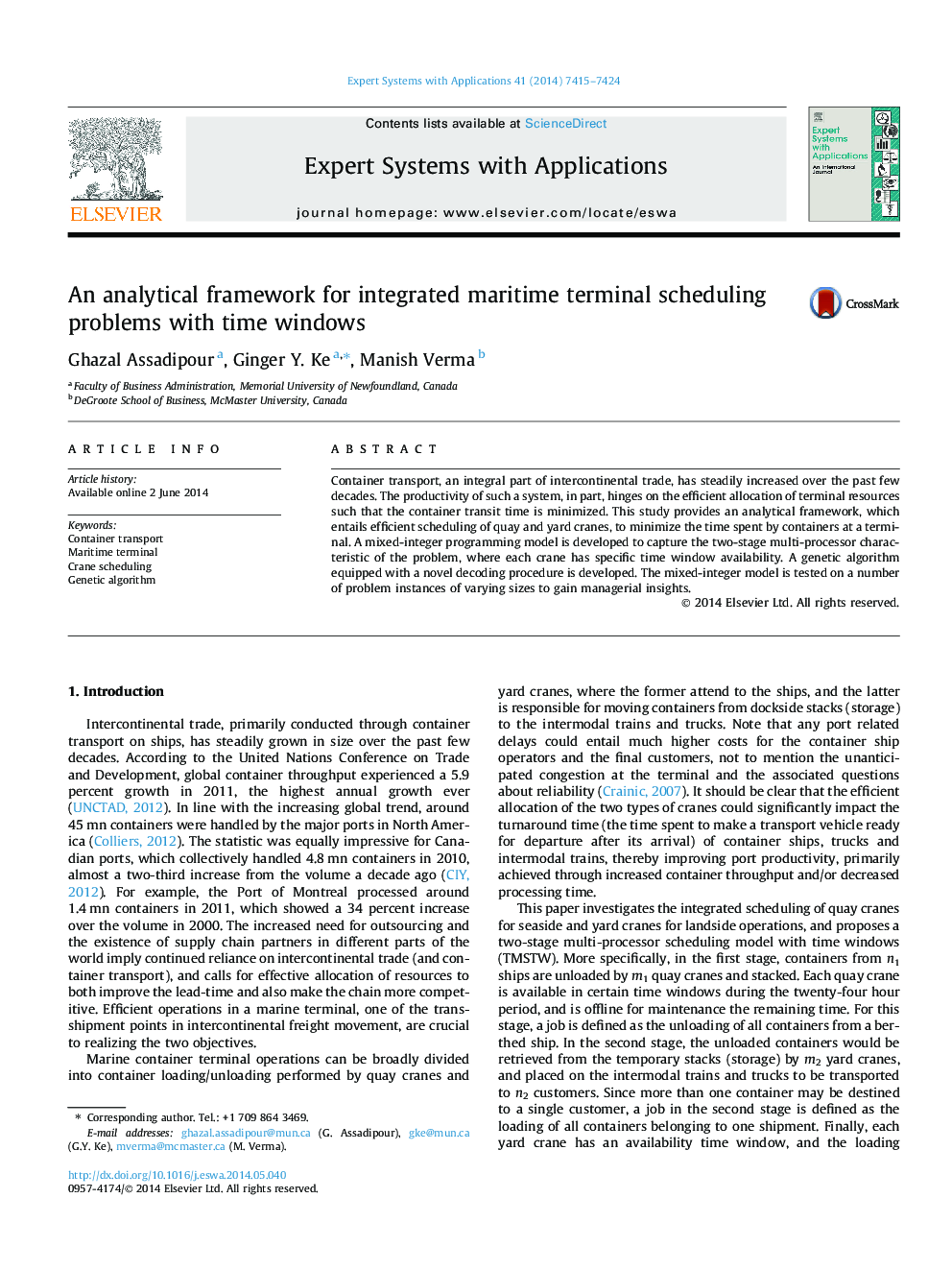| Article ID | Journal | Published Year | Pages | File Type |
|---|---|---|---|---|
| 382386 | Expert Systems with Applications | 2014 | 10 Pages |
•We propose an analytical framework for efficient scheduling at maritime terminals.•The model captures two-stage multi-processor situations.•Time window consideration enhances the practicality of the approach.•A genetic algorithm with a novel decoding procedure is developed and tested.•Managerial insights are provided based on various problem instances.
Container transport, an integral part of intercontinental trade, has steadily increased over the past few decades. The productivity of such a system, in part, hinges on the efficient allocation of terminal resources such that the container transit time is minimized. This study provides an analytical framework, which entails efficient scheduling of quay and yard cranes, to minimize the time spent by containers at a terminal. A mixed-integer programming model is developed to capture the two-stage multi-processor characteristic of the problem, where each crane has specific time window availability. A genetic algorithm equipped with a novel decoding procedure is developed. The mixed-integer model is tested on a number of problem instances of varying sizes to gain managerial insights.
